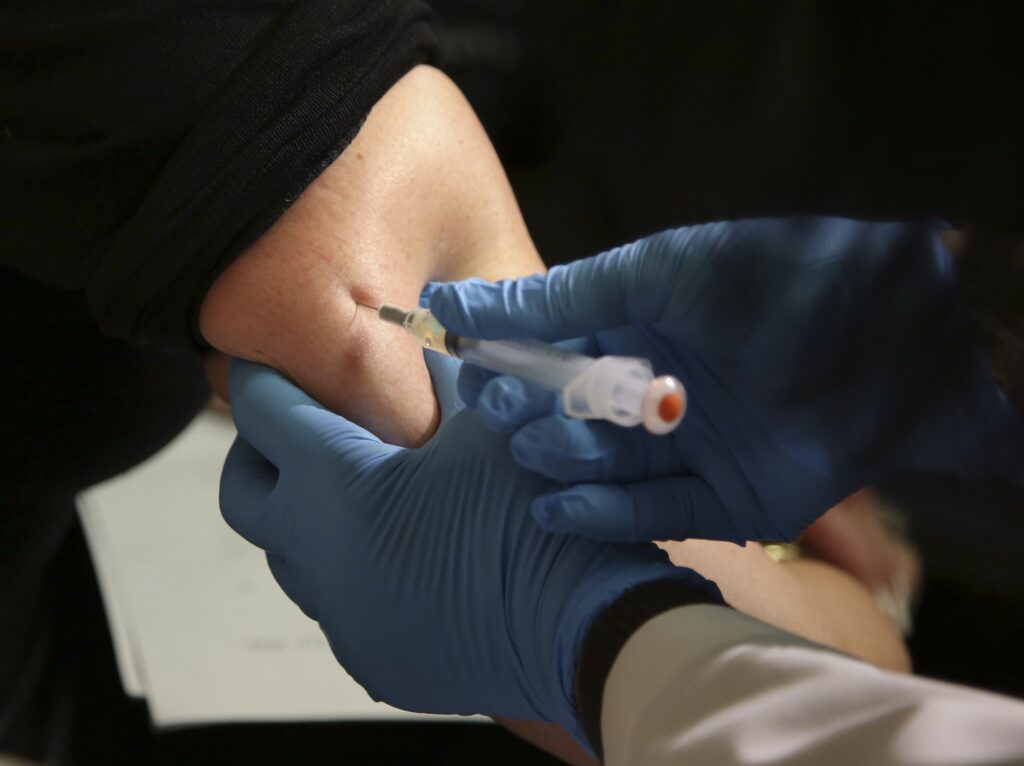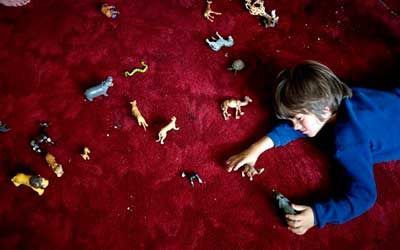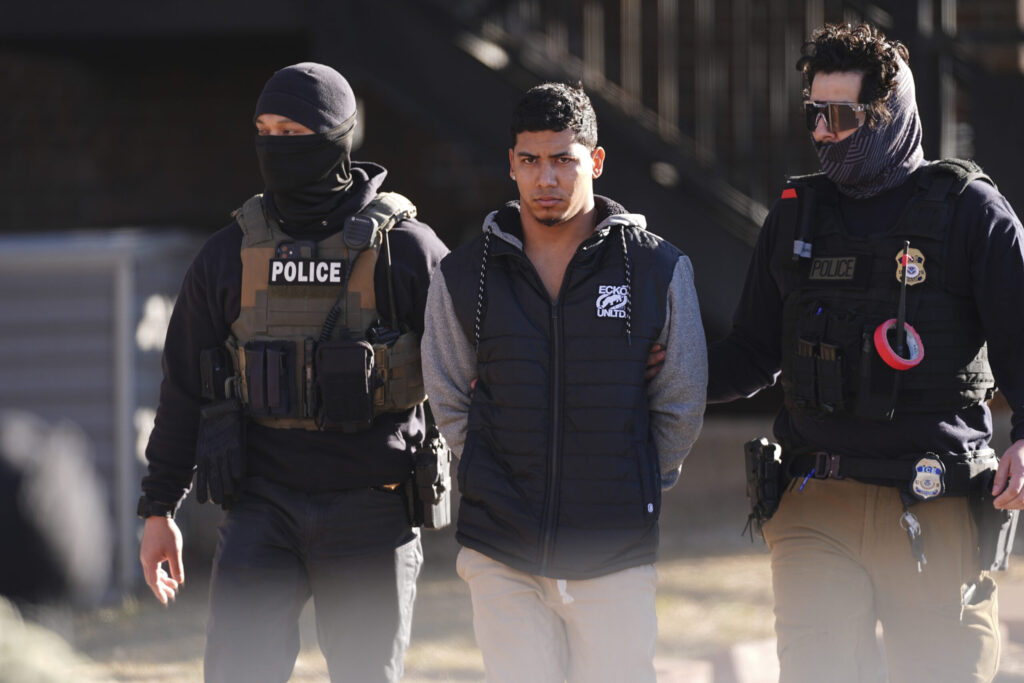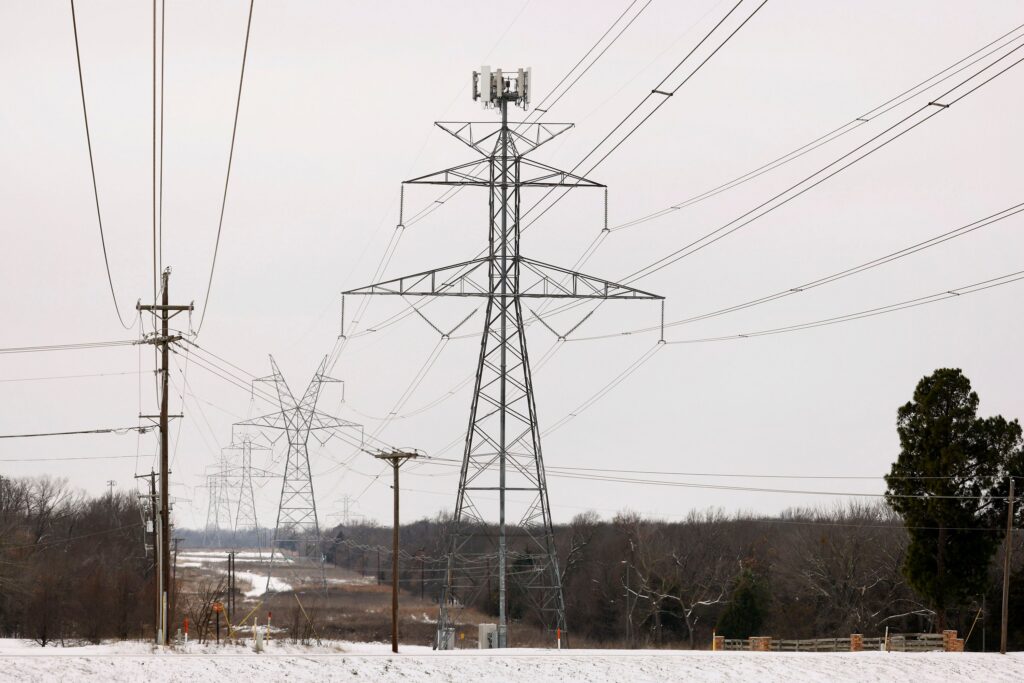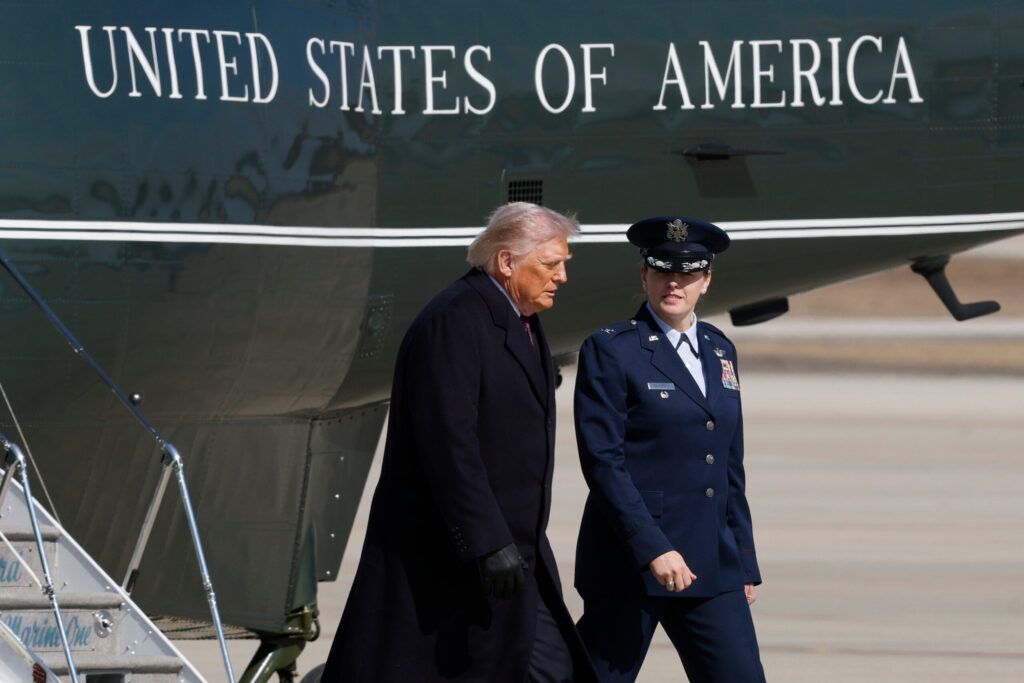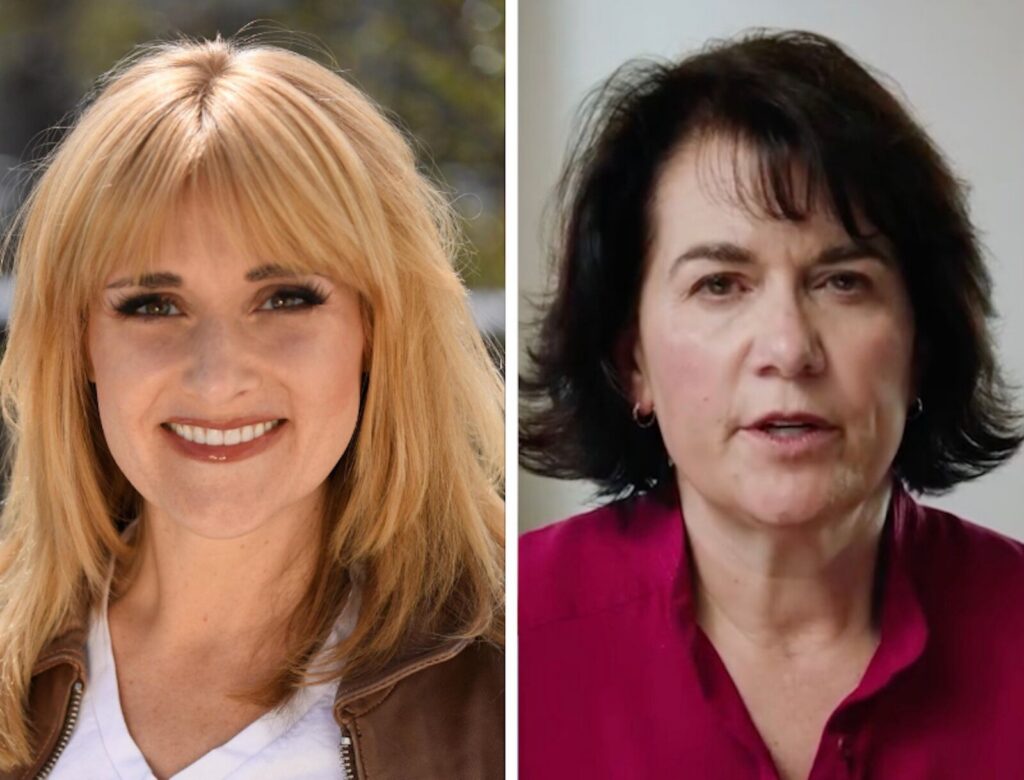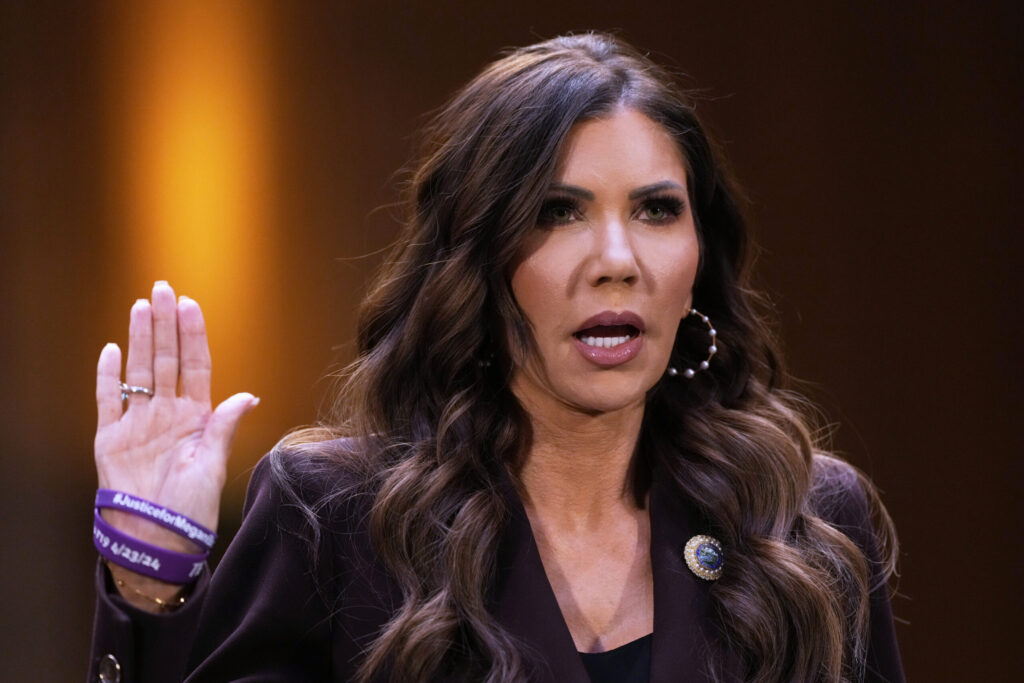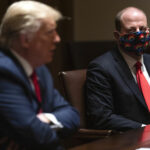Q&A with Murphy Robinson, public safety chief

Brief bio:
-
Executive director of the Department of Public Safety for the City and County of Denver, since May. Had been interim director since January.
-
Previously Denver’s chief operating officer, 2019-2020; also has served as executive director of Denver’s Department of General Services and as Denver’s deputy mayor.
-
Was assistant city manager of Englewood, 2015-2017, and assistant city manager of Brighton in 2015.
-
Once was a police officer for Xavier University in Cincinnati, Ohio, and for the city of Brighton.
Colorado Politics: At a time in your life when you were a member of law enforcement, you also were a target of abuse by another law officer. Recount that ordeal and describe its impact on your view of police work. In your view, was it the act of a rogue cop, or did it reflect more systemic racism? How does that experience influence your work in your current calling as Denver’s public safety director?
Murphy Robinson: While in Cincinnati, Ohio, I was in the car with three of my college friends who happened to be African American, and we were heading to the airport to pick up my sister. I was pulled over four times and three of those times were within the same jurisdiction. I asked the officer each time I was pulled over and heard several times it was because my “headlights were dim.” I told one officer that is not against the law and he said, “Well, I just wanted to see if you were doing something.” Another officer asked where I was headed, and I told him I was headed to the airport. He then asked what I was doing at the airport and I said I was picking someone up and asked if that was against the law. He said “Don’t worry about that right now. Give me your license and I’m going to need the licenses of all three of your friends as well.” I said I need probable cause for being pulled over and just to let you know, I am an off-duty police officer and I am armed. He said, “You should have told me that up front, I thought you were one of the ‘dirties’.”
In my view, I believe these experiences were the acts of rogue cops but also reflective of systemic racism that exists in some areas. When these things occur, they must be addressed as they have no place in our modern society.
That being said, I also believe most police officers are out there doing the right thing and carrying out their duties to protect and serve communities to the best of their abilities. I think the Denver Police Department does a great job for the most part. If and when issues arise, we will address them appropriately. I think one of the best ways to deal with systemic racism is to ensure the makeup of a law enforcement agency is reflective of the community it serves. We will continue to work towards recruiting officers who reflect the diverse makeup of the Denver community.
My background makes me well-suited to lead Denver’s Department of Public Safety because I have balance. I have served as a police officer, so I understand the challenges that come with that line of work. Being a police officer is a hard job and you’re working in situations every day that are potentially dangerous. I also understand what its like to be black in America and that there are times when law enforcement does not treat everyone in the community equally. My hope is that we continue to challenge the status quo to make sure that everyone in Public Safety provides the best service possible to every member of the Denver community.
CP: A nationwide protest movement following the death of George Floyd at the hands of Minneapolis police has sparked what many say is an overdue public debate about race and justice. It also has attracted wide-ranging activists, some violent, aiming to advance a range of political agendas that arguably extend beyond police brutality and even racism in general. Does that kind of involvement risk watering down, even derailing the movement’s original objective — highlighting and ultimately ending racism in the justice system?
Robinson: Yes, I do believe the political agendas of some dilutes the desire for systemic change. I support the national movement against racism after the heartbreaking death of George Floyd and stand beside those who are demanding justice and change. However, I believe this movement is at risk of being highjacked by political agendas and general lack of respect for all of the things our community needs a police presence for. In my opinions, the conversations about defunding police departments are both uninformed and very dangerous.
I hear calls daily that involve active shooters, domestic violence and other types of violent crime that frankly cannot have any other type of a response other than law enforcement. In Denver right now, we are struggling with rising acts of violent crime and we depend on the Denver police to manage this. At the same time, I also hear calls that come in regarding homelessness, mental health and addiction issues that are sometimes better served by a response that doesn’t include law enforcement. That is why partnering with the community on efforts like the STAR program, which diverts 9-1-1 calls to a mental health provider and a paramedic, makes so much sense. It creates a system that allows the appropriate response. This system does not come without challenges however, as there are times when seemingly benign issues can escalate to the point of needing a police intervention. I hope we can continue to partner with other city departments and the community to create more programs like STAR as we try to reimagine policing in Denver.
When it comes to criminal justice reform, it’s not just law enforcement that we need to pay attention to. We need to take a look all the other services that provide support to our community. Human services, the judicial system, alternatives to jail, transitions from jail and others. We need to ensure all programs and budgets are working towards the same goal, effectively and efficiently. Law enforcement is only one piece of a bigger puzzle.
CP: Denver’s sheriff serves as the city-county’s chief jailer, as in other Colorado counties. Unlike in those other counties, Denver’s sheriff isn’t elected — and that raises questions of accountability for critics of the way Denver’s jails are run. Solutions to assorted issues — including those involving basic inmate safety — seem elusive. What is your agenda for tackling those issues?
Robinson: First off, an elected sheriff does not guarantee accountability. And, further, you can remove some accountability as an elected person often does not answer to any one person. Those who say an elected sheriff reports to the constituents — this does not necessarily translate to law enforcement getting some of the needed criminal justice reforms completed. Selecting the right sheriff is key to addressing these issues.
I just led the search committee that identified the candidates for Denver’s next sheriff, and I believe Mayor Hancock chose well when he appointed Elias Diggins to the role. Sheriff Diggins is a leader who not only has the community’s best interests in mind, but also has a thorough understanding of operational issues in the Denver Sheriff Department. He is committed to making sure inmates are treated like our brothers and sisters, ensuring our deputies are held accountable and also making sure it’s a desirable place to work. It’s no easy task reporting to a jail for work every single day.
My goal is to work with Sheriff Diggins to assure that DSD maintains a safe, equitable and humanistic approach to corrections. We must ensure that the systems we have in place work for the inmates. Too often, we have systems in place that work for the government, but not necessarily for the people it’s tasked to serve. Across the country, we are finding that some people who end up in jail are innocent. So, my direction to the staff at DSD is to treat all inmates as if they are innocent. If we treat them that way, we are treating them with kindness and making sure they have the services they need to be successful once they return to the community. Jail is a place where people serve their time and DSD is not there to issue punishment. The sentence that landed people in jail is the punishment. Our new sheriff intends to lead with humanity and says that the transition back to the community starts the day an inmate is admitted to the jail. I support that direction and will work with DSD to ensure the right systems are in place for those we serve.
CP: Do police unions like Denver’s wield too much power — especially via their collective bargaining agreements — in keeping problematic police officers on the job? Are there other institutional impediments that should be reformed in the interest of screening cops for the bad apples?
Robinson: I believe that police unions have played an important role in representing those who choose to protect and serve. With that role comes responsibility not only to union members, but to the community as well and I think unions must keep that in mind. I work well with the Denver Police Union and expect that we will work together to incorporate the voice of the community as we look to reimagine policing to better meet the needs of Denver’s residents.
I would hope that anyone in public safety, including the Denver Police Union, does not have an interest in protecting officers who act outside of their responsibilities, the “bad apples” if you will.
I do have some concerns about how applicants are screened when they apply to become members of Denver’s law enforcement agencies, not because we’re seeing “bad apples” but because we’re not seeing enough diversity in those candidates who advance through the civil service process. I intend to work with the mayor and the Civil Service Commission to ensure the widest and most diverse pool of applicants are seriously considered as potential members of our law enforcement agencies.
CP: Tell us a little about your origins and how you came to choose a life in public service.
Robinson: I always wanted to be a police officer. I grew up in a neighborhood where some of my neighbors were police officers and that was one of my dreams growing up. I went to the police academy my junior year of college and became a police officer while I finished my course work at Xavier University.
After a few years I transferred my certification back home to Colorado. When I was working a night shift in Brighton, I became curious about who my police chief reported to and learned about city management. I met with the Brighton City manager, who after meeting me once a month for a year and giving me an assignment to complete each month, offered me a paid internship to learn more about how that role functioned. Part of the condition of my internship was that I go to graduate school and get my master’s degree in political science with an emphasis on policy and politics, and that launched my career in city management. Before being recruited to Denver, I worked in Brighton and Englewood as an assistant city manager. I felt a career in public service would be rewarding and I haven’t been disappointed yet.
CP: From your perspective as a career public administrator, how would you describe relations between Denver’s city government’s executive branch and its city council?
Robinson: It’s a lot better than I’ve experienced in other cities. I think Denver thinks it has unique issues when it comes to challenges between the executive branch and city council due to the fact that it is a strong-mayor form of government, but contentious relationships between the two exist in many communities around us. I would also say that’s the reason we have a system of checks and balances. I believe, for the most part, even though there are a lot of public and political debates, that the mayor and his cabinet work very well with Council members across the board. I believe at the end of the day we are all trying hard to find common ground to best serve the Denver community.
CP: Would you ever consider running for elected office?
Robinson: God has not led me down that specific road as of yet, so right now I’m focused on my current role keeping our city safe and equitable for all of our citizens. It’s important that, through all the global issues we are facing, we become a united Denver. My prayer is that I can be a vessel that would allow us to unite and see each other’s strengths through this difficult time.


